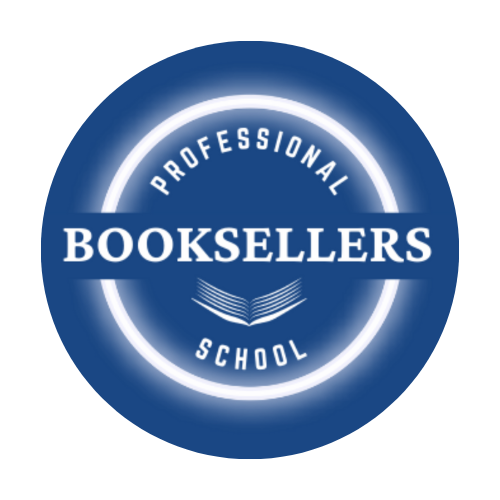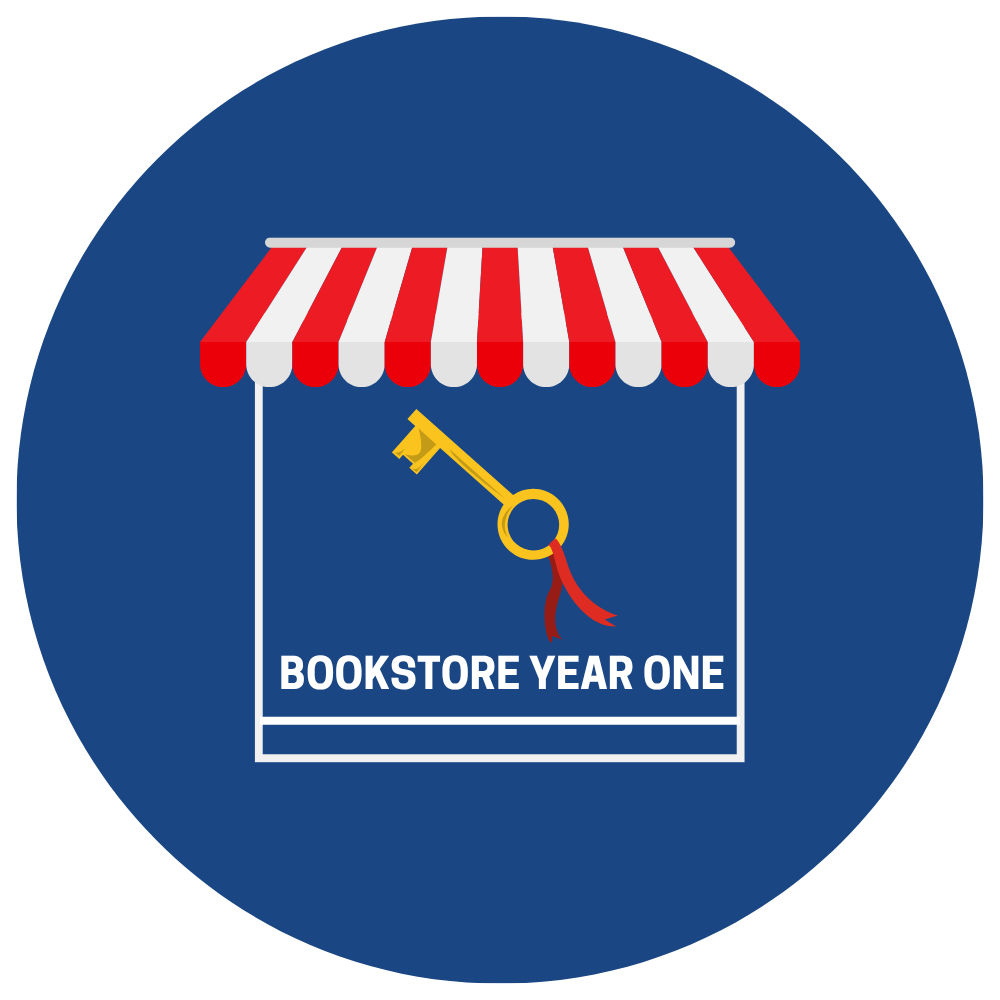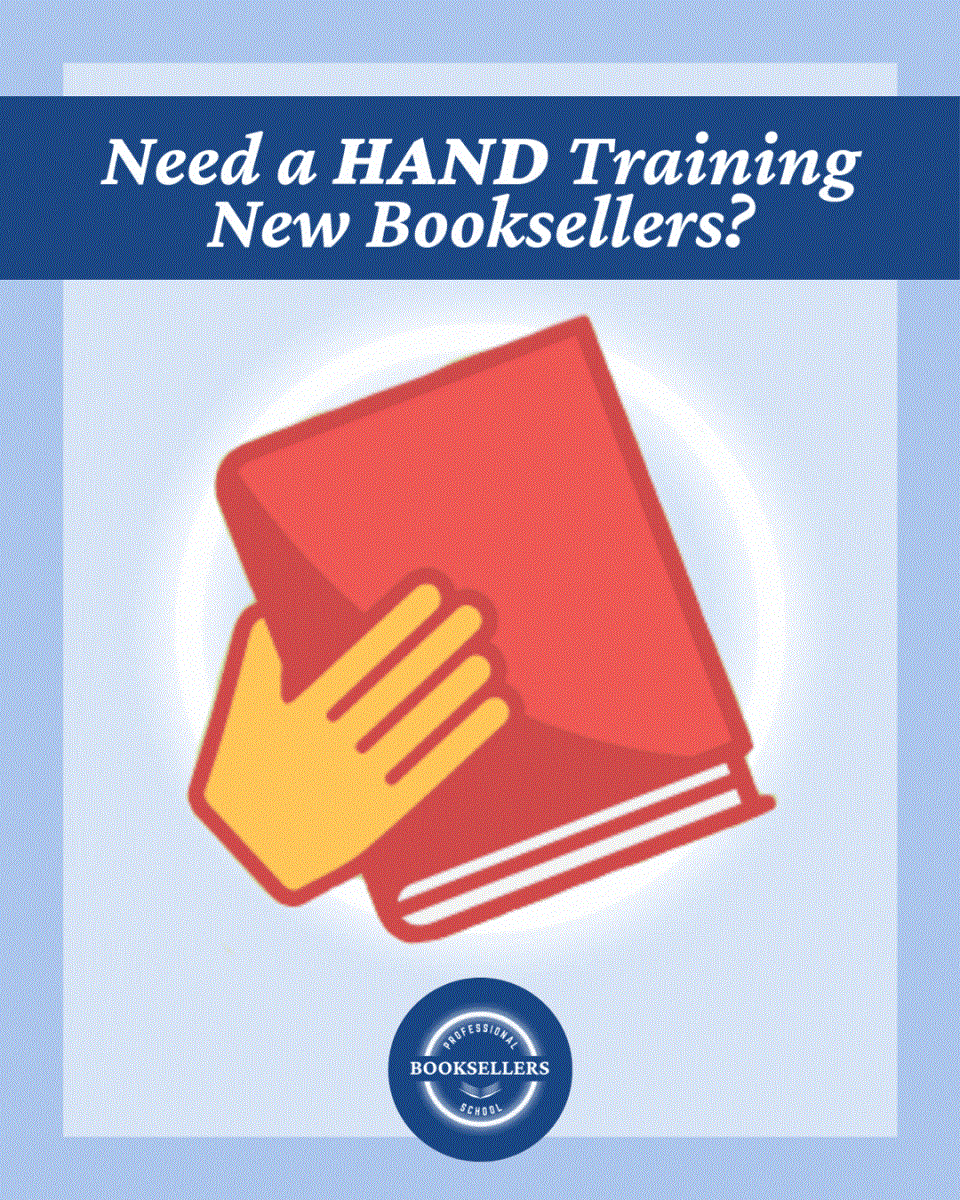Bookstore Finances
The next live Bookstore Finances Course will begin April 6, 2026. The live course has 13 classes and runs through July 6, 2026. Classes are Mondays at 4:30 pm ET / 3:30 pm CT / 2:30 pm MT / 1:30 pm PT.
Registration opens Monday, February 16 at 1 pm ET / 12 pm CT / 11 am MT / 10 am PT
The cost is $400. Most Regionals offer discount codes.
The next live Bookstore Finances Course will begin April 6, 2026. The live course has 13 classes and runs through July 6, 2026. Classes are Mondays at 4:30 pm ET / 3:30 pm CT / 2:30 pm MT / 1:30 pm PT.
Registration opens Monday, February 16 at 1 pm ET / 12 pm CT / 11 am MT / 10 am PT
The cost is $400. Most Regionals offer discount codes.
Click Here to Register on 02/16/2026
Bookstore Finances is designed to educate on the day to day and long term finance-related needs of an independent bookstore, considering both high level financial topics such as taxes and accounting and deep dives into financial reporting and strategy. A mix of live classes via Zoom, handouts, and assignments will be used to guide the student towards creating financial systems and strategies for real-time applications. This course is geared towards store owners and/or managers who handle finances on a day to day basis and is for educational purposes only, meaning no certification is earned for this course.
Space in this non-certification course is limited to 20 Active Level students and 20 Auditing students. Only one person at a time per store may enroll.
Students must have owned or managed a retail bookstore (this includes mobile, pop-ups, and other novel model shops) for at least one year and must have access to the store’s finances and financial documents. Students who attempt to register and have not owned or managed a store for one full year will have their registrations canceled and refunded.
2026 Bookstore Finances Syllabus
2026 Instructors
Core Faculty:
Dean Candice Huber, Owner, Tubby & Coo’s, New Orleans, LA
Instructor Carol Price, Dean of Inventory Management and former owner of BookPeople of Moscow, Moscow, ID
Instructor CoriAnn Theroux, The Green Dragon Bookshop, Fort Dodge, IA
Instructor Chris Keil, Left Bank Books, St. Louis, MO
Instructor Anmiryam Budner, Main Point Books, Wayne, PA
Instructor Terri LeBlanc, Swamp Fox Books, Marion, IA
Guest Instructors:
Cyanne Stonesmith, Trident Booksellers and Cafe, Boulder, CO
Nathan Halter, Batch
Membership
Being an active member of the bookselling industry is a critical step in growing a bookstore and shows commitment to your chosen profession. Stores with students in all Professional Booksellers School courses are required to be current members of their regional trade association and/or the American Booksellers Association. To enroll, students must also create a PBS account, which is free.
Course Components & Cost
Active Students: people who are committed to attending classes and office hours and doing all of the homework assignments. 20 Active Student seats are available. (Note: Active Students who are not store owners will be asked for a letter from the store owner stating that they support the student taking the course and are willing to listen to feedback from homework assignments.)
Auditing Students: people may attend live or watch the videos, and who will not being doing homework assignments. 20 Auditing Student seats are available.
This course consists of 13 live online classes via Zoom and discussions, chat, and office hours via Discord. Homework is assigned for each class and will be review by an instructor with feedback given, although there are no grades for this course. Active students are expected to attend the live classes and complete all homework assignments to get the most out of the course.
The course is $400, with discount codes available for members of NAIBA, SIBA, GLIBA, MIBA, MPIBA, CALIBA, and PNBA. Find out what support your Regional Trade Association offers on our website
Registration Requirements
-
Before you register you must join PBS as a member. Membership is free, and joining ensures you receive our newsletter and can access course resources.
-
Only one person per store may enroll in the course
-
As a requirement of the course, students must have owned or managed a bookstore for at least one year (this includes mobile, pop-ups, and other novel model shops) and must have access to the store's financial information. Students who attempt to register and have not owned or managed a store for one full year will have their registrations canceled and refunded."
- Students must have a working knowledge of using spreadsheets.
-
Students must use a POS system that tracks individual inventory and supports purchase orders/receiving. Students' stores must have an accounting/bookkeeping system, whether that is software or spreadsheets.
Course Objectives
This course will provide a thorough overview of financial systems, reports, and strategies for an independent bookstore. At the conclusion of this course, students will be able to:
-
Demonstrate confidence in finance and a general understanding of bookstore finance basics.
-
Employ necessary language to confidently speak to accountants, bookkeepers, financial advisors, and other finance professionals.
-
Customize their Chart of Accounts to make it work better for them.
-
Efficiently and successfully complete the ABACUS survey.
-
Implement practical tips and strategies immediately to improve their understanding of their store’s finances.
-
Establish a financial rhythm that makes sense for them.
Major Project
By the end of this course, students will have created a full ongoing financial dashboard. Assignments for each class will build on this overall course project so that by the end of the course, the financial dashboard will be fully functional.
Classes
April 06 Class 1: Intro to Bookstore Finances
April 13 Class 2: Daily Store Finance
April 20 Class 3: Vendor, Debt, & Tax Management
April 27 Class 4: Working with ABACUS
May 04 Class 5 Event, Promo, & Co-Op Management
May 11 Class 6: Staff Financial Management
May 18 Class 7: Accounting Basics
May 25 Memorial Day, no class
June 01 Class 8: Bookkeeping for Booksellers
June 08 Class 9: Cash Flow Deep Dive
June 15 Class 10: Balance Sheet Deep Dive
June 22 Class 11: Profit & Loss Deep Dive
June 29 Class 12: Creating & Analyzing Your Budget
July 06 Class 13: Creating Your Ongoing Financial Dashboard
July 13 Last day to turn in course project
Learning Outcomes
As a result of this course, you will have the knowledge to:
-
Create an ongoing financial dashboard, fully understand how to analyze it, and take action on your analysis.
-
Create financial goals for your store.
-
Create a daily cash and credit card reconciliation system.
-
Implement internal controls to reduce chances of theft or embezzlement.
-
Track your debt and understand your financing options.
-
Create a tax calendar.
-
Create a system for managing your invoices.
-
Understand the varying types of wages and benefits you can offer to employees.
-
Understand when to use 1099 vs W2 employees.
-
Understand when and how to pay different types of payroll taxes.
-
Determine how much payroll your store can afford to invest.
-
Build an event P&L statement.
-
Build a tracking system for promos & co-op.
-
Understand how to successfully complete the ABACUS survey.
-
Speak to your accountant using their terminology.
-
Develop an accounting task schedule.
-
Customize your Chart of Accounts to meet your reporting needs.
-
Run Profit & Loss and Balance Sheet reports, fully understand how to analyze those reports, and take action on your analysis.
-
Understand the difference between cash, profit, and sales.
-
Create strategies to manage your cash flow.
-
Understand how to read an official cash flow statement.
-
Create a budget, fully understand how to analyze it, and take action on your analysis.











